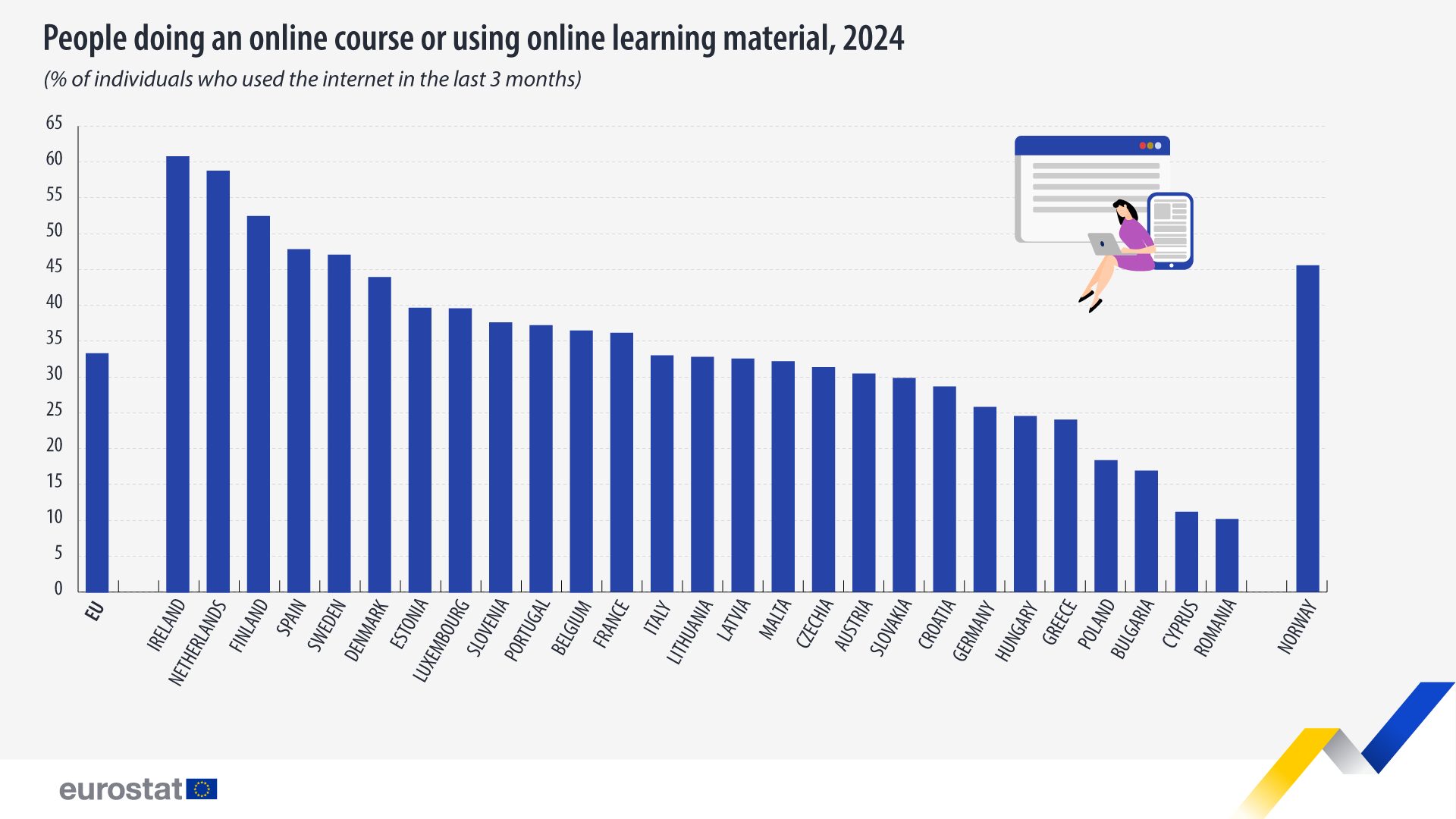Luxembourg, 24 January 2025
In 2024, 33% of EU internet users reported that they had done an online course or used online learning material in the 3 months prior to the survey. This is a 3 percentage point (pp) increase compared with 2023 (30%).
Ireland recorded the highest share of internet users engaged in online learning (61%), followed by the Netherlands (59%) and Finland (53%).
By contrast, online education was less prevalent in Romania (10%), Cyprus (11%) and Bulgaria (17%) (Source dataset: isoc_ci_ac_i).

When considering specific online learning methods, 18% of internet users did an online course in 2024, which was most prevalent in Ireland (36%), Finland and Spain (both 32%). At the same time, 29% internet users used online learning materials, with the highest share in the Netherlands (53%), Ireland (52%) and Finland (46%).
This news item marks the International Day of Education, celebrated on 24 January.
For more information
- Statistics Explained article on digital economy and society statistics – households and individuals
- Thematic section on digital economy and society
- Database on digital economy and society
Methodological notes
- The data in this article are based on the annual survey on the use of ICT in households and by individuals. The results above refer to individuals’ experiences during the 3 months prior to the survey, i.e. the first quarter of 2024.
- Online course: a course (planned series of learning activities on a particular subject or topic) offered entirely or partly online and resulting in a qualification or certificate of attendance.
- Online learning material: the use of educational material (other than an online course) on any subject or topic available online or in a digital format for educational, professional or private purposes (e.g. audio-visual materials, online learning software, electronic textbooks, learning apps).
Source – Eurostat
